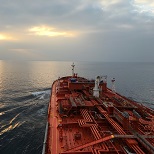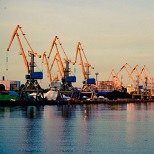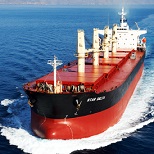Seven Countries, Seven Sets of Rules
The countries of the Black Sea Basin have their own rules governing the arrest of ships. Efforts to create a uniform set of rules have not fully succeeded, making it difficult to provide legal support and have ships released from detention.
The progress that has been made, however, justifies the continued efforts of the maritime world toward unified law.
The countries bordering the Black Sea are Ukraine, Russia, Georgia, Turkey, Bulgaria, Romania and Moldova. Of those, Russia, Romania and Ukraine are members of the International Convention for the Unification of Certain Rules relating to the Arrest of Sea-Going Ships. Bulgaria is a member of the separate International Convention on the Arrest of Ships.
Each jurisdiction has its own quirks and nuances. Relationships of the parties are usually complicated. Situations may be difficult to resolve through legal means, so arrested vessels may be idle for months.
We usually recommend that the parties seek a compromise on the length of time a vessel is held before turning to the legal issues of the arrest itself.
Here is a look at some of the individual rules governing arrest and detention of ships in Black Sea nations.
Turkey
The new Commercial Code of Turkey, which went into effect in January 2012, includes regulations on ship arrests that are in line with international global practice. Nevertheless, Turkish common practices remain conservative.
For example, a ship can only be arrested for the debts of the ship owner or when the vessel is subject to a maritime lien.
A widespread practice is that of requiring some form of counter-security or bail. The size of the collateral, usually a bank guarantee or deposit, rarely exceeds 40 percent of the maritime claim.
The amount of cross-collateral required may reach SDR 10,000 regardless of the amount of the claim.
Turkish law is rather variable. Under the new rules, a new problem has emerged: proving jurisdiction of the Turkish court.
Russian Federation
Although Russia is part of the International Convention for the Unification of Certain Rules relating to the Arrest of Sea-Going Ships, the practice of arresting ships is still controversial.
For example, a ship can be arrested as a result of bankruptcy proceedings and be treated as a piece of property unrelated to a maritime claim.
The procedure that exists in the family of common law is not available in the Russian Federation. The court usually decides on cross-collateral, although according to many lawyers access to justice is limited in such a case.
Romania
Romania introduced new rules on arrest of ships as part of its new Civil Procedure Code that went into effect Jan. 2. One unusual provision is that the ship may be arrested before the statement of the claim on the merits is filed.
The statement must be submitted with the court within 20 days from the date of claim on a ship arrest. If the statement of claim is not filed, the vessel must be released.
Bulgaria
Bulgaria is one of 10 member states of the International Convention on Arrest of Ships that took effect in 2011. A ship may be arrested in the Bulgarian port both as security for a maritime claim and as the security for a claim under the Civil Procedure Code.
The Merchant Shipping Code of Bulgaria does not provide for the right of arrest to secure a maritime claim. But under the Convention such an arrest is allowed under the following conditions:
“At the start of the procedure relating to the arrest of a ship, the ship is owned by the person liable for the maritime claim and which at the time when the claim arose was the owner of the ship in respect of which the maritime claim arose, or charterer or the bareboat charterer, time charterer or voyage charterer of that ship.”
Ukraine
In Ukraine, the situation is somewhat similar to Bulgaria. A vessel may be arrested as security for a claim, to ensure maritime claims, or to satisfy interim measures under civil procedure or the Code of Commercial Procedure.
Ukraine’s membership in the International Convention for the Unification of Certain Rules Relating to the Arrest of Sea-Going Ships brought an element of order and civility to the practice of ship arrest in Ukraine.
It seems now that the extra-judicial arrest of a ship in a modern legal framework of Ukraine is impossible. However, court practices are still controversial and unsettled.
Moldova and Georgia
Moldova has only recently become a maritime nation by gaining access to the Black Sea through the port of Giurgiule?ti. Ship arrest practice in Moldova is in its infancy.
Although the Merchant Shipping Code of Moldova provides fairly progressive standards governing ship arrest, Moldova, like Georgia, is not a member of one of the international conventions on arrest of ships.
The Maritime Code of Georgia regulates arrest of ships in a rather simplified form. The political situation in and around Georgia is tense, and the arrest of ships in Georgian ports is often related to international economic sanctions.

Украинский и, конечно, иностранный бизнес откровенно устал от непредсказуемых и, порой, незаконных действий экоинспекций. Не так давно имел...

Взрыв в порту Бейрута 4 августа 2020 года, унесший жизни более 200 человек и ранивший более 7 тысяч, стал трагическим и показательным пр...
 Обзор мирового шиппинга за Ноябрь2020.11.24
Обзор мирового шиппинга за Ноябрь2020.11.24Новый тренд: атаки на судовладельцев В октябре эксперты и комментаторы вновь обсуждали кибератаки на веб-сайты крупнейших игроков отрасли...

На сегодняшний день, с учетом потребностей бизнеса, актуальным является вопрос порядка оформления правоотношений по использованию земель вод...
 Обзор мирового шиппинга за октябрь2020.10.20
Обзор мирового шиппинга за октябрь2020.10.20Специалист Международной юридической службы Interlegal Андрей Нетребенко специально для Ukrainian Shipping Magazine собрал несколько клю...

В нашем предыдущем материале был опубликован краткий обзор наметившегося тренда на диджитализацию и виртуализацию морского транспорта, усиле...
 Деньги, бизнес и водные пути2020.06.08
Деньги, бизнес и водные пути2020.06.08Заводя разговор о реках, мы не можем не вспоминать, что они служили колыбелью самых первых цивилизаций еще давным-давно, поскольку служили г...

23 апреля 2020 на сайте Министерства инфраструктуры Украины был опубликован Проект приказа Министерства инфраструктуры Украины «О внесении и...

24 сентября 2019 года в Официальной Газете (Турция) были опубликованы существенные поправки в турецкое законодательство о портах. Ниже – клю...

Наконец-то Закон Украины о концессиях, которого так долго ждал портовый бизнес, принят! О его экономических и юридических аспекта...






 Одеса, 65014, Україна, вул. Грецька 1а
Одеса, 65014, Україна, вул. Грецька 1а